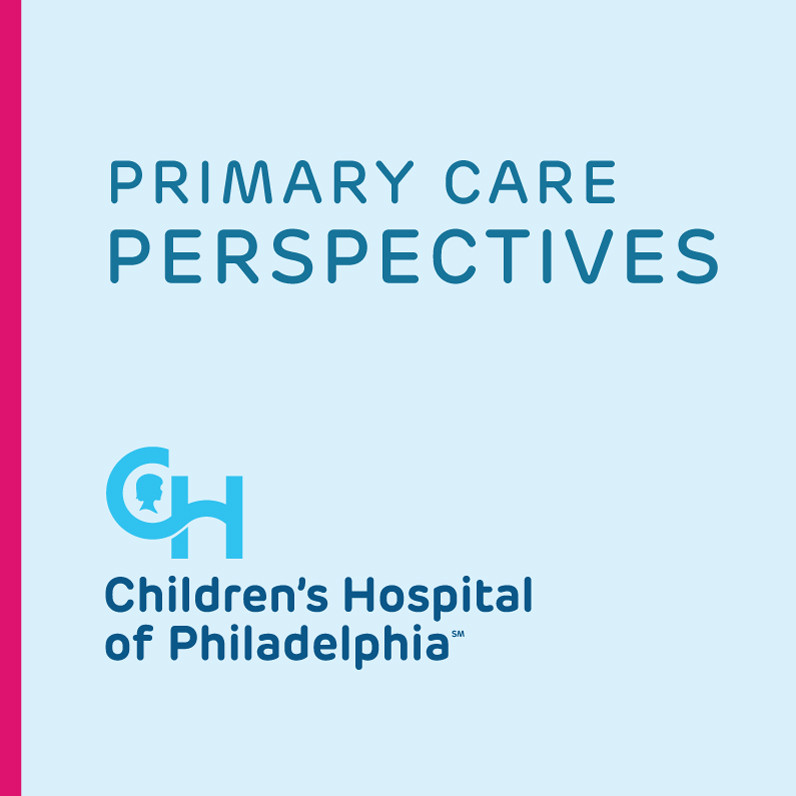
160.9K
Downloads
208
Episodes
Listen in as Katie Lockwood, MD, a primary care pediatrician at Children’s Hospital of Philadelphia, discusses hot topics in primary care with CHOP subject-matter-experts as they weigh in on issues affecting the daily practice of pediatricians. This podcast is for general informational and educational purposes only and is not to be considered as medical advice for any particular patient. Clinicians must rely on their own informed clinical judgment in making recommendations to their patients. ©2017 by Children’s Hospital of Philadelphia, all rights reserved.
Episodes
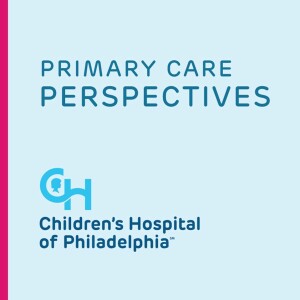
Thursday Dec 07, 2023
Primary Care Perspectives: Episode 158 - Magnesium: Pros and Cons of Supplementation
Thursday Dec 07, 2023
Thursday Dec 07, 2023
As the fourth most abundant mineral in the body, magnesium is essential for regulating many bodily functions. But as a supplement — especially over the counter — it could do more harm than good. Neil Patel, PharmD, BCOP, Director of Retail and Specialty Pharmacy and Investigational Drug Service at Children's Hospital of Philadelphia, reviews different formulations and potential contraindications, and shares dosing considerations and general guidelines for treating pediatric constipation and migraine management; and more. This podcast is for general informational and educational purposes only and is not to be considered as medical advice for any particular patient. Clinicians must rely on their own informed clinical judgment in making recommendations to their patients. ©2023 by Children's Hospital of Philadelphia, all rights reserved.
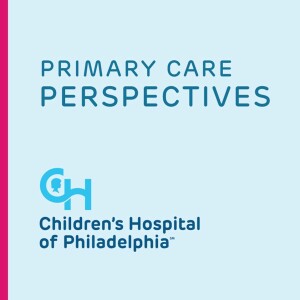
Monday Nov 13, 2023
Primary Care Perspectives: Episode 157 - Counseling for Pre-Diabetes
Monday Nov 13, 2023
Monday Nov 13, 2023
Unlike diabetes, the first line of treatment for prediabetes isn’t medication — but rather lifestyle modifications. Rachana D. Shah, MD, MsTR, Medical Director of the Healthy Weight Program at Children’s Hospital of Philadelphia, reminds primary care physicians about therapeutic options, reviews the American Academy of Pediatrics’ most recent screening guidelines, highlights the risk factors of prediabetes plus how to manage it; and more. This podcast is for general informational and educational purposes only and is not to be considered as medical advice for any particular patient. Clinicians must rely on their own informed clinical judgment in making recommendations to their patients. ©2023 by Children's Hospital of Philadelphia, all rights reserved.
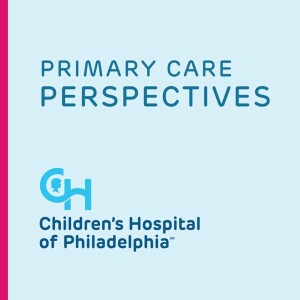
Thursday Oct 19, 2023
Primary Care Perspectives: Episode 156 - Lipid Screening
Thursday Oct 19, 2023
Thursday Oct 19, 2023
“To fast or not to fast?” When it comes to cholesterol screening, that is the question. Rachel Shustak, MD, and Jordy Martino, MSN, CRNP, an attending cardiologist and a nurse practitioner with the Lipid Heart Clinic at Children's Hospital of Philadelphia, respectively, provide answers to that age-old question plus non-pharmacologic approaches proven to lower cholesterol levels; and more. By taking the ideal screening ages, lifestyle changes and diet recommendations from the American Academy of Pediatrics (AAP) and translating them into real, practical tips for reducing the risk of cardiovascular disease, they help to settle a longstanding debate among primary care physicians. This podcast is for general informational and educational purposes only and is not to be considered as medical advice for any particular patient. Clinicians must rely on their own informed clinical judgment in making recommendations to their patients. ©2023 by Children's Hospital of Philadelphia, all rights reserved.
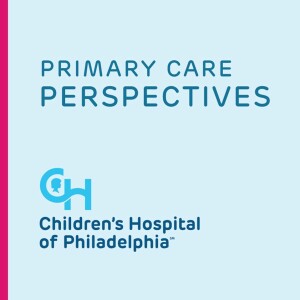
Thursday Sep 28, 2023
Primary Care Perspectives: Episode 155 - Vaccine Hesitancy
Thursday Sep 28, 2023
Thursday Sep 28, 2023
If there’s one lesson the COVID pandemic taught us, it is that public health lives on a local level — and in order to learn from the community, we must listen to the individual. Angela K. Shen, ScD, MPH, Visiting Research Scientist at the Vaccine Education Center at Children’s Hospital of Philadelphia, addresses growing concerns over vaccines and how physicians can help not only ease the worries of parents but also rebuild trust amidst the spread of misinformation; and more. This podcast is for general informational and educational purposes only and is not to be considered as medical advice for any particular patient. Clinicians must rely on their own informed clinical judgment in making recommendations to their patients. ©2023 by Children's Hospital of Philadelphia, all rights reserved.
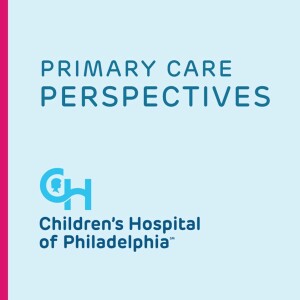
Monday Sep 18, 2023
Primary Care Perspectives: Episode 154 - Nirsevimab (Beyfortus)
Monday Sep 18, 2023
Monday Sep 18, 2023
For the first time, a preventative medicine is available to protect infants and high-risk toddlers from respiratory syncytial virus (RSV). Lori Handy, MD, MSCE, attending physician in the Division of Infectious Diseases at Children's Hospital of Philadelphia, details the science behind the monoclonal antibody, nirsevimab (Beyfortus) and its importance, safety and efficacy, side effects, administration and proven benefits, such as a decrease in morbidity, as shown by clinical trials; and more. This podcast is for general informational and educational purposes only and is not to be considered as medical advice for any particular patient. Clinicians must rely on their own informed clinical judgment in making recommendations to their patients. ©2023 by Children's Hospital of Philadelphia, all rights reserved.
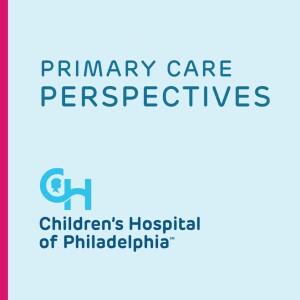
Wednesday Aug 30, 2023
Primary Care Perspectives: Episode 153 - Fatal Poisonings
Wednesday Aug 30, 2023
Wednesday Aug 30, 2023
It’s hard to call an opioid overdose an accident when it happens to a young child — at home and under supervision. Some fatal poisonings are deliberate or even malicious. But such is the opioid epidemic. Christopher E. Gaw, MD, MBE, assistant professor at Nationwide Children’s Hospital, shares the latest findings from his recent study on fatal poisonings among young children. His findings include common themes, risk factors and demographic characteristics among victims; the shift from prescription to synthetic opioids; and as a result, how the emergency department has had to adapt to better counsel families on childproofing and preventing accidental ingestions; examples of community involvement and intervention; and more. This podcast is for general informational and educational purposes only and is not to be considered as medical advice for any particular patient. Clinicians must rely on their own informed clinical judgment in making recommendations to their patients. ©2023 by Children's Hospital of Philadelphia, all rights reserved.
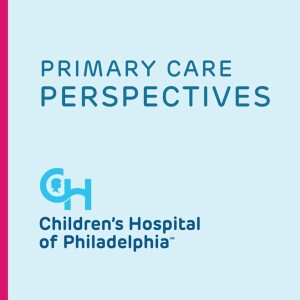
Tuesday Aug 08, 2023
Primary Care Perspectives: Episode 152 - Torticollis: 3 Types and Takeaways
Tuesday Aug 08, 2023
Tuesday Aug 08, 2023
When thinking about physical therapy, babies may not necessarily come to mind. But in the case of congenital muscular torticollis patients, PT can have a profound impact on their motor development into early childhood. Meredith Caverow, PT, DPT, and Kristen Kouvel, PT, DPT, PCS, physical therapists at Children’s Hospital of Philadelphia, offer primary care pediatricians the top three takeaways from their new clinical pathway: how to detect and distinguish between the three main types of torticollis, including common physical exam findings as well as anomalies to look out for, and why that distinction is important; when to consider referrals for further evaluation by a physical therapist and what parents can do with their child at home for an early as possible resolution. This podcast is for general informational and educational purposes only and is not to be considered as medical advice for any particular patient. Clinicians must rely on their own informed clinical judgment in making recommendations to their patients. ©2023 by Children's Hospital of Philadelphia, all rights reserved.
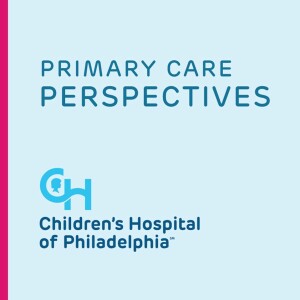
Thursday Jul 27, 2023
Primary Care Perspectives: Episode 151 - Syphilis: Prevalence and Prevention
Thursday Jul 27, 2023
Thursday Jul 27, 2023
Snuffles, Hutchinson teeth and saber shins — what do these things all have in common? They are symptoms of syphilis. Also known as the “great mimicker,” syphilis can present itself in many ways. Ericka Hayes, MD, attending physician in the Division of Infectious Diseases at Children's Hospital of Philadelphia, addresses the growing problem of congenital syphilis and the rising rates of transmission from mother to child; describes the common symptoms at birth or in early infancy as found in the newborn nursery and at early newborn checkups, including the classic syphilis rash and its variations; stresses the importance of universal STI screening for teens in prevention; and more. This podcast is for general informational and educational purposes only and is not to be considered as medical advice for any particular patient. Clinicians must rely on their own informed clinical judgment in making recommendations to their patients. ©2023 by Children's Hospital of Philadelphia, all rights reserved.
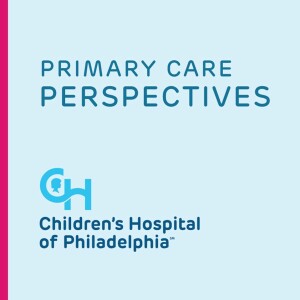
Thursday Jul 13, 2023
Primary Care Perspectives: Episode 150 - ADHD Medication Management
Thursday Jul 13, 2023
Thursday Jul 13, 2023
Through no fault of their own, ADHD medications often bear the misconception of being ineffective — or worse, unsafe — yet they are the first line of treatment used by many physicians, including primary care pediatricians. Katrina A. Fletcher, MD, attending psychiatrist in the Department of Child and Adolescent Psychiatry and Behavioral Sciences at Children's Hospital of Philadelphia, provides a broad overview of ADHD medications, including the highs and lows of varying treatments, from increased productivity to loss of appetite; the trial and error in determining the correct dosing; adjuncts such as behavioral interventions; and more. This podcast is for general informational and educational purposes only and is not to be considered as medical advice for any particular patient. Clinicians must rely on their own informed clinical judgment in making recommendations to their patients. ©2023 by Children's Hospital of Philadelphia, all rights reserved.
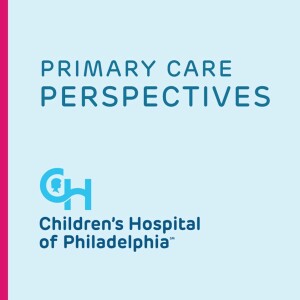
Thursday Jun 29, 2023
Primary Care Perspectives: Episode 149 - The Future of Pediatrics
Thursday Jun 29, 2023
Thursday Jun 29, 2023
Did you know that in the late 19th and early 20th centuries, there were “milk stations” that provided supervision of infant feeding and growth? The roots of pediatric care can be traced back to those early days, and there have been considerable changes since. With no signs of slowing down, pediatric care continues to evolve at a rapid pace. Katie K. Lockwood, MD, MEd, a pediatrician and holder of a Distinguished Endowed Chair in the Department of Pediatrics at Children's Hospital of Philadelphia, and Alex Fiks, MD, MSCE, a pediatrician, academic investigator, and the Director of both Clinical Futures (Research Center of Emphasis) and the Possibilities Project: Innovation at CHOP, review the present, past and future state of pediatric primary care, which includes the pros and cons of the electronic health record (EHR) and its evolution; the innovation of clinical decision support tools and its effect on patient outcomes; pediatric career outlooks, including expected labor shortages; and more while also offering supporting evidence and advice to trainees. This podcast is for general informational and educational purposes only and is not to be considered as medical advice for any particular patient. Clinicians must rely on their own informed clinical judgment in making recommendations to their patients. ©2023 by Children's Hospital of Philadelphia, all rights reserved.
